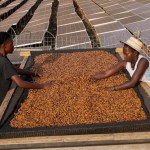(BELGOROD, RUSSIA) – Ukraine has intensified its campaign against Russia’s energy infrastructure, striking a thermal power plant in Belgorod for the first time since the start of the full scale invasion. The move followed a warning from Ukrainian leader Volodymyr Zelensky, who said that continued attacks on Ukraine’s power grid would be met with direct retaliation on Russian territory.
Kyiv has already conducted dozens of long-range drone strikes on Russian refineries, fuel depots and pipelines across southern and central regions. The attacks have reduced Russia’s oil refining capacity by an estimated 25 percent, according to Russian media quoted by Reuters. Ukrainian officials say the goal is not symbolic but strategic: fuel shortages directly disrupt military logistics.
General Oleksandr Syrskyi, commander of Ukraine’s Armed Forces, said Russian frontline forces are already struggling. “There is a fuel crisis in Russia which directly affects logistics and supply,” he stated. Without diesel, jet fuel and lubricants, Russian units cannot sustain their operations.
Evidence of Disruption
| Affected Sector | Reported Impact |
|---|---|
| Oil Refining Capacity | 25% shut down due to fires and damage |
| Russian Gas Stations | 1 in 50 nationwide closed, 14% affected in Caucasus, 50% in Crimea |
| Crude Oil Storage | 27,000 tonnes backed up with “nowhere to go” |
| Power Supply | Belgorod city without electricity and water after strike on plant |
In occupied Crimea, petrol queues have stretched for up to 40 minutes, while fuel in some areas is reserved strictly for military and government vehicles. Signs in Russian filling stations now warn that 92 and 95 octane petrol is available “only for special-purpose vehicles.”
The Belgorod blackout is the most symbolic escalation so far. Video from inside a shopping mall showed escalators grinding to a halt as the lights went out shortly after the strike. Residents also reported loss of running water as pumping stations shut down.
Zelensky said Russia must “understand that if Ukraine faces blackouts, the same will happen in Russian cities.” He added that Ukraine has avoided targeting civilian infrastructure for more than three years, despite widespread Russian missile strikes on Ukrainian power plants. “But patience has limits,” he said.
Russian Response
Moscow has reacted to the fuel crisis by partially banning diesel exports and extending restrictions on gasoline exports. Until recently, Russia earned substantial income by exporting refined fuel abroad. Those profits helped subsidise domestic fuel prices. Without export income, economists warn, fuel inside Russia may become more expensive for civilians even as supply grows more unstable.
To offset shortages in Crimea, fuel shipments are being redirected from other regions. Analysts note that this “whack-a-mole” redistribution leaves rural areas exposed.
Compounding the problem, Russian logistics have suffered separate accidents. In western Russia, a fuel train exploded into flames after a collision with a truck that reportedly ignored a red signal. Twelve fuel wagons derailed and ignited, killing the truck driver.
Rising Frustration Among Russian Soldiers
Internal pressure is growing inside Russia’s armed forces. Independent Russian outlet Verstka published testimonies from mobilised soldiers describing their service as “slavery.” Many complain they were told deployment would last three to six months, but some are entering their fourth year without rotation.
“Every day out here has felt like a waste of my life,” said one soldier. Others claim the state is “deliberately exterminating” them to replace them with foreign migrants.
Reports of desertion are rising. In one leaked audio recording, a Russian commander was heard ordering his men to “shoot deserters on sight.” Videos published online show soldiers being beaten or forced into pits as punishment.
Domestic Instability
Away from the front, Russian society is showing further signs of strain. Authorities are investigating the death of a regional councillor found hanging from a tree with his hands tied behind his back. Media reports suggest at least 25 people have died in a mass poisoning linked to contaminated homemade alcohol in Leningrad region.
Even within Russia’s political circle, unusual deaths continue. Online researchers have added the latest victim to unofficial lists tracking unexplained fatalities since the war began.
International Reaction
Ukraine’s Western partners continue to provide support. Denmark has announced a new military aid package worth 400 million US dollars. Meanwhile, tensions are rising with Hungary after reports that drones launched from Hungarian territory crossed into Ukrainian airspace. NATO member Hungary denies direct involvement.

















































